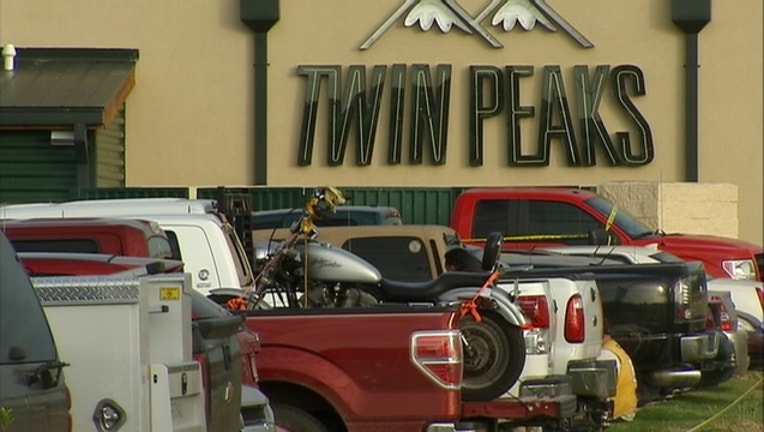New indictments against 48 more bikers in Waco gunfight at Twin Peaks

A Texas grand jury indicted 48 more bikers Wednesday in connection with a May 2015 shootout outside a Twin Peaks restaurant that left nine dead, bringing the total number of people facing felony charges to 154.
Prosecutors in Waco announced that all the bikers indicted are charged with engaging in organized criminal activity, meaning they're accused of being complicit in the shooting that also left 20 people injured. Those indicted face 15 years to life in prison if convicted.
McLennan County District Attorney Abel Reyna won indictments against 106 other bikers in November. In a statement issued Wednesday, Reyna did not rule out more indictments in what he called "an ongoing investigation."
Six of the 48 people newly indicted have not been arrested yet, and their indictments remain under seal. But Reyna and the McLennan County district clerk's office confirmed they were facing the same charge as other bikers.
Many of the bikers say they were at the restaurant for a peaceful gathering of motorcycle clubs. An apparent confrontation outside between the Bandidos and Cossacks became chaotic and bloody as police swarmed into the gunfire and dozens of bikers ran for cover.
Prosecutors have not indicted anyone specifically for murder in the nine deaths. Instead, the organized criminal activity charge incorporates allegations that every person indicted was responsible for the deaths and injuries that ensued in the gunfire.
The people arrested included members of several motorcycle clubs and groups unaffiliated with the Bandidos or Cossacks.
At trial, prosecutors will likely to have to prove that at least one person from each motorcycle club committed a criminal act in order to prove others from that same club were part of a conspiracy, said Sandra Guerra Thompson, a law professor at the University of Houston.
"It's less direct culpability that you have to prove," Thompson said. "For the person who didn't use a weapon and who didn't commit a killing, all they have to prove is that they're a member of a street gang. This is pretty standard law in the states and the federal government."
Investigators have offered few details publicly about what sparked the fight or how the gunfire played out. Police have cited a gag order in the criminal case of one of the bikers. Media groups including The Associated Press have fought the order, contending it is overly broad and unconstitutional.
Much of the narrative has come from the evidence obtained by the AP. Ballistics reports show four of the nine people killed were struck by the same caliber of rifle fired by Waco police. Officers only used .223-caliber rifles that day, though it's not clear if any bikers also did. Police and the district attorney's office have defended the officers' use of force, claiming that bikers had also opened fire on authorities.
Even if police officers fired the ultimately fatal shots, prosecutors could still convict bikers in the deaths if they can prove the bikers were part of the criminal conspiracy and police were only responding to an already violent scene, Thompson said.
Walter Reaves, a Waco defense attorney and Baylor University law professor, called prosecutors' interpretation of the law "unprecedented."
"It's guilt by association and guilt by presence is what it amounts to," Reaves said, adding: "I don't really know how you prove how each of those people intentionally or knowingly killed."

